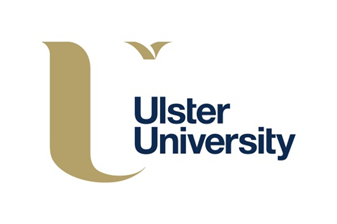Managing People in the Organisation
Module Handbook 2021/22
Module Code: BMG735 (CRN 36521)
Department of Management, Leadership and Marketing
Table of Contents
Welcome
1. Module Overview and Communication
2. Aim & Learning Outcomes
3. Assessment and Feedback
Coursework
Standard Assessment Guidance
4. Learning Resources
Library's Support Services
Blackboard Learn Student Orientation Course
5. Organisation and Management
6. Learning and Teaching Methods
Teaching and Learning Plan
7. Student Voice & Support Services
UUSU Advice Bureau Service
UU Student Wellbeing Service
Welcome
Welcome*,* I hope you enjoy the module and find this handbook clear but any questions, please feel free to get in contact.
Kind regards,
Mark McCrory, Module Coordinator
January 23
Module Overview and Communication
Course/s: MBA and MBA with Advanced Practice
| Module Details |
|
|
| Module Title |
Manging People in the Organisation |
|
| Module Code |
BMG735 |
Module Level |
| Credit points |
15 |
Module Status |
| Semesters |
2 |
Location |
| E-learning |
Blended |
|
| Contact Details and Communication Methods |
|
|
| Module Coordinator |
Mark McCrory (See cover sheet for contact details) |
|
| Teaching Staff Contact Details |
Not applicable |
|
 |
If you require advice or guidance on any aspect of the module, please read the guidance provided here, in the Module Handbook. |
|
| General Information, Queries and Consultations |
For general and specific queries or studies advice you can avail of the 'Virtual Office Hours' or contact me by email to arrange a suitable appointment. |
|
 |
Key announcements will be presented during tutor-led activities. |
|
| Module Announcements |
Out of class communication including notifications, reminders, etc will be distributed via your student email. |
|
Aim & Learning Outcomes
 Module Rationale
Module Rationale
Effective managers are not only effective in their use of economic and technical resources, but also in their management of people. In order to operate effectively, it is important that managers develop knowledge and understanding of the organisational context, the foundations of individual behaviour, and relationships between the two. Equipped with this understanding, and given that many aspects of people management are increasingly being devolved from Human Resource (HR) specialists to line managers, it is also important that line managers have the necessary skills to analyse HR issues and implement solutions to HR problems.
Overall Aim of the Module
The aims of the module are to enable students to acquire knowledge and understanding of the organisational context, the foundations of individual and group behaviour in the workplace and the core areas of Human Resource Management (HRM), and to be able to apply this knowledge and understanding in a range of organisational settings.
Learning Outcomes 
What you should be able to do by the end of this module.
Successful participants will be able to:
- Demonstrate a critical and contextually based knowledge and understanding of the core behavioural management areas of motivation, effective team management / team work, and conflict management, and be able to apply this knowledge and understanding to HRM functions.
- Develop a critical awareness of the broad environmental influences (including the international dimension) which impact upon the practice of HRM in organisations and the key concepts that underpin human relations; within this framework develop critical knowledge and understanding, and the ability to critically evaluate policies, in core HRM areas including resourcing, relations, reward and development.
- Demonstrate an ability to consistently apply knowledge and intellectual skills and to critically evaluate and integrate theory and practice in the development of creative, reasoned, rigorous and research based interventions to HRM issues.
- Develop practical and applied skills in the management of HR issues, including negotiation, communication and problem solving skills which are based on personal effectiveness through self-awareness and self and time management.
Assessment and Feedback

What you need to do to demonstrate achievement of learning.
This module will be assessed via one item of assessment broken into two parts
| Assessment Type |
Weighting (%) |
| Coursework Case Organisation Report |
100% |
Coursework
Assessment Task  CASE ORGANISATION REPORT
Assessment Guidelines
CASE ORGANISATION REPORT
Assessment Guidelines
Each student will be presented with a case and required to analyse that case in three sections of 1 200 words each (i.e. your assignment in total will be 3,600 words).
For each section, students should select one topic from the module and use that topic to analyse the case and propose applied and practical recommendations for how it could be addressed. Analysis and recommendations should be based on relevant literature on that topic.
The assignment will be due Wednesday 10th May by 10am and should be submitted via Turnitin. Turnitin will confirm the originality of the work and ensure that appropriate referencing standards have been followed. The Turnitin links for the sections can be found in the Blackboard Learn area for the module, further guidelines will be provided during class.
Assignments should be submitted as Word documents only,
if a pdf or other document is submitted,
a mark of zero will be awarded. Word documents should not have borders around the outside of the page.
Your word document should have the file name: Your Name BMG735. For example, if the lecturer was submitting the assignment, the Word document submitted would be saved as
Mark McCrory BMG735.
This coursework accounts for 100% of the overall assessment. Students should refer to the marking criteria provided below.
View additional 'Standard Assessment Guidance,' for further guidance applicable to all coursework elements.
Draft Assignments
Students will be presented with their case in week 2 with additional support as outlined in the teaching plan. If students wish, they may submit one section as a draft by 10am Monday of week 8. They will receive written feedback and can also book a one-to-one online consultation to discuss the draft feedback. Drafts will not be considered after this date with no exceptions, however students are encouraged to contact the lecturer to discuss their assignment at any stage of the semester and a drop in clinic will be held in week 12 for any final queries.
Coursework FEEDBACK
Students will then receive a mark and feedback via Blackboard three working weeks from the submission date.
Coursework Assessment Rubric / Marking Proforma
| % Range |
Knowledge and Understanding and Evidence of Reading (40%) |
Content and Application of Theory (50%) |
Referencing (5%)** |
Presentation, Grammar and Spelling (5%) |
| 80 -- 100 |
Exce ptional k nowledge and in-depth under standing of pr inciples and concepts |
Clear evidence of relevant application of literature for the chosen topic to critically evaluate what is happening and offer unique insight. Evidences synthesis alongside original and reflective thinking. |
Accurate in-text ref erencing and r eference section (5) |
L ogically and co herently st ructured using correct grammar and spelling (5) |
| 70 -- 79 |
E xcellent k nowledge and depth of under standing of pr inciples and concepts |
Clear evidence of relevant application of literature for the chosen topic to critically evaluate what is happening. Evidences synthesis and may include some original and reflective thinking. |
|
|
| 60 -- 69 |
Compr ehensive k nowledge and depth of under standing of pr inciples and concepts |
Relevant application of literature for the chosen topic to critically evaluate what is happening. Evidences some synthesis. |
|
|
| 50 - 59 |
App ropriate k nowledge and under standing of pr inciples and concepts |
Accurate identification of details within the case relevant to the chosen topic with occasional application of literature to these. |
G enerally accurate in-text ref erencing and r eference section (one or two errors) (3) |
Ge nerally, l ogically and co herently st ructured using mostly correct grammar and spelling (3) |
| 40 -- 49 |
Basic k nowledge of key pr inciples and concepts only |
Identification of some details within the case relevant to the chosen topic with limited application of literature to these. |
Fairly accurate in-text ref erencing and r eference section (three to four errors) (2) |
S tructure lacks logic (i.e. int roducing ir relevant m aterial, breaking a rguments up, failing to sequence points), grammar and spelling mistake (2) |
| 35 -- 39 |
Limited and/or sup erficial k nowledge of key pr inciples and concepts only |
Some details within the case relevant to the chosen topic missed with limited to no application of literature to these. |
Errors with in-text ref erencing and/or r eference section (0) |
Poor st ructure, grammar and spelling (0) |
| 0 -- 34 |
Insu fficient evidence of key pr inciples and concepts |
Details within the case relevant to the chosen topic missed with no application of literature to these. |
|
|
\* Any assignment not written in an easily readable font (e.g. Arial, Calibri) in a minimum size 12 and using double line spacing will attract a mark of zero on the Presentation, Grammar and Spelling criteria.\
Standard Assessment Guidance
The following guidance is applicable to all coursework items.
1) Marks are awarded for content, quality of discussion and effective use of referencing. To achieve high marks, students will be expected to demonstrate a familiarity with the wider literature in the subject area, and not merely an ability to re-produce the lecture notes. Higher marks will also be awarded to students who provide strong evidence of analysis and critical evaluation of the various concepts and techniques identified and their application to real world situations.
2) Work should include references to journal articles and other relevant publications, and should be properly laid out using the Harvard system of referencing as indicated below:
Lawson, C.L. and Katz, J. (2004) Restorative justice: an alternative approach to juvenile crime. Journal of Socio-Economics, 33 (2), 175-188.
Usunier, J. and Lee, J.A. (2013) Marketing Across Cultures. 6th ed. Harlow: Pearson.
More detailed guidance is available in the '[Guide to Referencing in the Harvard Style](http://guides.library.ulster.ac.uk/ld.php?content_id=28291696)'. We encourage you to avail of the Academic Support via the Library's Support Service, further details in the Library Support Services Section.
3) Marks will be deducted for incomplete or inaccurate referencing.

4) Students may make multiple submissions in advance of the due date to receive feedback via Turnitin on their academic writing style (similarity score) and any potential plagiarism issues. A similarity score of less than 20% is generally acceptable provided plagiarism is not found.
5) Students must adhere to the word limit policy so as to avoid penalties as follows:
> +10% - no penalty
> +\>10% - 20% - 5% penalty
> +\>20% - 30% - 10% penalty
> +\>30% - 40% - 15% penalty
> +\>40% - 50% - 20% penalty
> +\>50% - maximum mark of 40
Learning Resources
Here is the continuation of the document content converted to HTML:
Learning Resources

Reading is a major part of your degree.
Reading List
Suggested book:
Woods, S.A. and West, M.A. (2015)
The Psychology of Work and Organizations. Second Edition. Cengage Learning EMEA, Hampshire.
or
Woods, S.A. and West, M.A. (2020)
The Psychology of Work and Organizations. Third Edition. Cengage Learning EMEA, Hampshire.
Alternative books:
Arnold, J. and Randall, R. (2016)
Work Psychology: Understanding Human Behaviour in the Workplace. Harlow, Pearson.
Ashleigh, M. and Mansi, A. (2012)
The Psychology of People in Organisations. Pearson, London.
Lewis, R. and Zibarras, L. (2013)
Work and Occupational Psychology: Integrating Theory and Practice. London: SAGE.
McKenna, E. (2012).
Business Psychology and Organizational Behaviour. Sussex, Psychology Press.
Matthewman, L., Rose, A. and Hetherington, A. (2009)
Work Psychology, Oxford, Oxford University Press.
Required journal reading will be provided for each topic each week. Useful journals are highlighted below:
> Journal of Applied Psychology
> Personnel Psychology
> Journal of Occupational and Organizational Psychology
> European Journal of Work and Organizational Psychology
> Journal of Organizational Behaviour
Useful Library Databases & Websites
In addition to useful library databases such as USearch, the following websites/Twitter accounts can be valuable sources.
https://scienceforwork.com/ https://twitter.com/ScienceForWork
Science for Work identify and select the evidence they consider most relevant. They critically evaluate its trustworthiness -- to give the highest quality information -- and then summarize findings and implications for practice in a 5-minutes reading.
http://www.ioatwork.com/ https://twitter.com/ioatwork
IO AT WORK is an American website which aims to bridge the gap between I/O (Industrial/Organisational Psychology, the American equivalent of Occupational Psychology) research and its application in the HR world (and beyond) by making it easier for practitioners to access and stay on top of recent published research.
https://digest.bps.org.uk/ https://twitter.com/ResearchDigest
The British Psychological Society\'s award winning Research Digest blog provides engaging, authoritative reports on the latest psychology research papers. The blog editor trawls hundreds of peer-reviewed journals looking for the latest findings from across the breadth of psychological science (including those related to Occupational Psychology). The aim is to report on those studies that make an important contribution, that are relevant to real life, timely, novel or thought-provoking.
Library's Support Services
In collaboration with teaching staff, your
Business Librarian will be delivering timetabled workshops to ensure you are able to make the best use of the
Library's services and information resources in successfully completing your coursework. Furthermore, if you need specific help with an assignment or dissertation then you can make an appointment to meet with your Business Librarian by email, phone or through using the
appointments schedule. Online support is also available through the Library's
subject pages for Business and Management and these provide help in developing your information and research skills through literature searching , academic writing support and referencing.
Blackboard Learn Student Orientation Course
It is highly recommended that you complete the above online course to get familiar with Ulster's Virtual Learning Platform, Blackboard Learn. The course is accessible from your 'Course List' in your Blackboard Area.
Organisation and Management
These are the types of learning activities that will make up your weekly timetable. [Module Title], is a 20-credit point module, this requires 200 hours of your commitment, distributed through the following learning and teaching activities over the 15-week semester:
| Activity |
Duration |
Total Hours |
| Lecture & on campus activities |
3 hours |
36 hours |
| Independent study -- Assigned reading and note-taking, activities & preparation for on campus activities |
9-10 hours per week |
114 |
| TOTAL |
|
150 |
The teaching and learning plan provides a more detailed overview of content on a weekly basis.
Module delivery will consist of lectures and on campus activities.
Attendance on campus and with online materials will be monitored.
Learning and Teaching Methods
hese are the type of learning activities you will experience in this module. The module is delivered through blended learning and will be facilitated through the provision of the following learning and teaching activities:
- Lectures and on-campus activities: We will be utilising lectures to introduce you to topics and application of theories combined with on campus activities.
- Online Resources: These will be an integral part of the delivery. You will be directed each week to academic, professional and open content resources to extend your knowledge, understanding and application.
- Independent Study: Utilise this time to prepare for lectures and research your assessment tasks.
-
Studiosity: This is an additional tool which you can use to get some initial (independent) feedback on draft work.
- Electronic Assessment: TurnItIn Feedback Studio and/or Blackboard Learn Assessments will enable assessment information submission and feedback delivery.
Blackboard Learning Support
If you require help or support with any of the digital learning tools, please view Ulster's
Blackboard Student Support area.
Student Voice & Support Services
How we support your opinion As a course team, we incorporate the key partnership principles set out in the joint UU & UUSU
Student Voice Guidelines and proactively engage with the democratic election of UUSU academic student reps (Faculty Reps, School/Dept Reps & Course Reps) to ensure that student opinion is heard at Ulster. We respect your views and welcome your honest and constructive feedback on the module.
There are several ways to do this:
- You can contact your Module Coordinator about any queries related to your learning experiences on the module.
- You can voice your opinions through the formal Staff/Student Consultative Committee process by contacting one of the elected
UUSU Course Reps in your class.
- You can use Unitu - a new student feedback online platform, which enables students to have the right opportunities to raise and discuss feedback about your course and UU in a transparent way. Unitu allows students, Academic Reps and staff to engage in discussions that aim to bring about concrete improvements and support the student voice.
- You will have the opportunity to give feedback on the module through completing the online Student Module Feedback Survey.
UUSU Advice Bureau Service
If you are experiencing difficulties that are impacting your studies, you can contact the Advice Bureau in the Students' Union. You can get advice and guidance on issues such as - complaints, appeals, housing problems, disciplinaries and info on various support providers available. To have a chat with the team,
contact UUSU online.
UU Student Wellbeing Service
If you are stressed, anxious or have additional wellbeing support needs or disability please contact
Student Wellbeing and take support.
